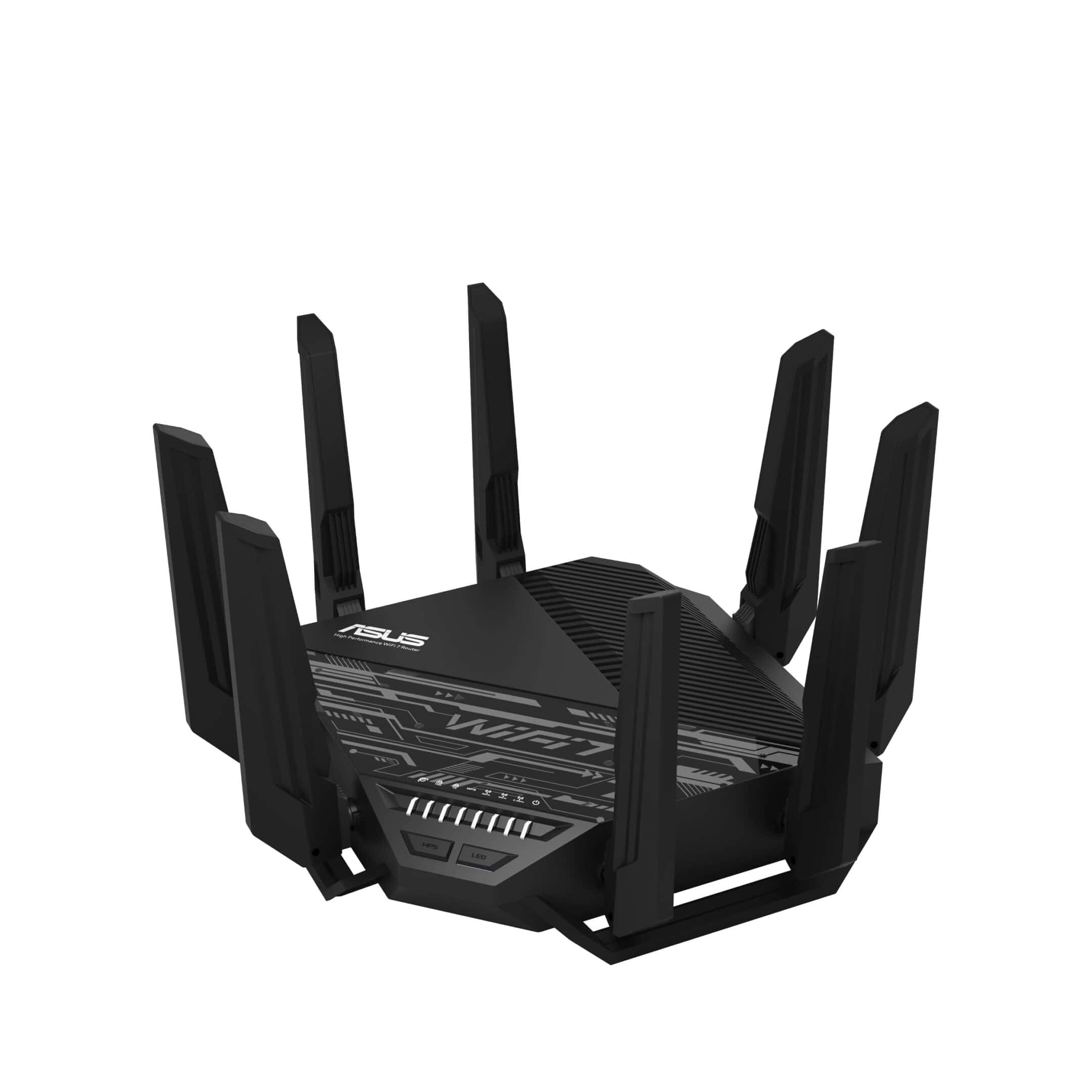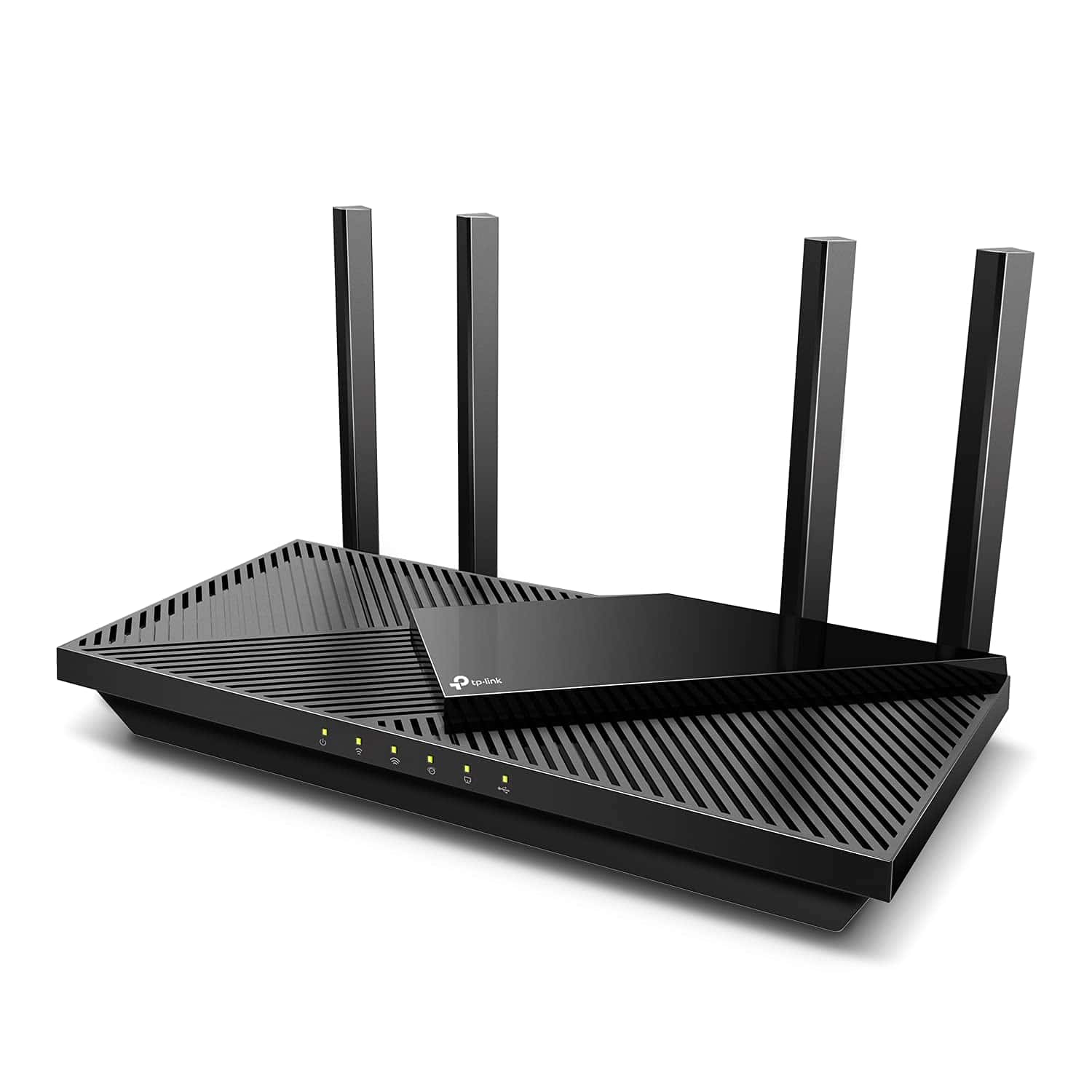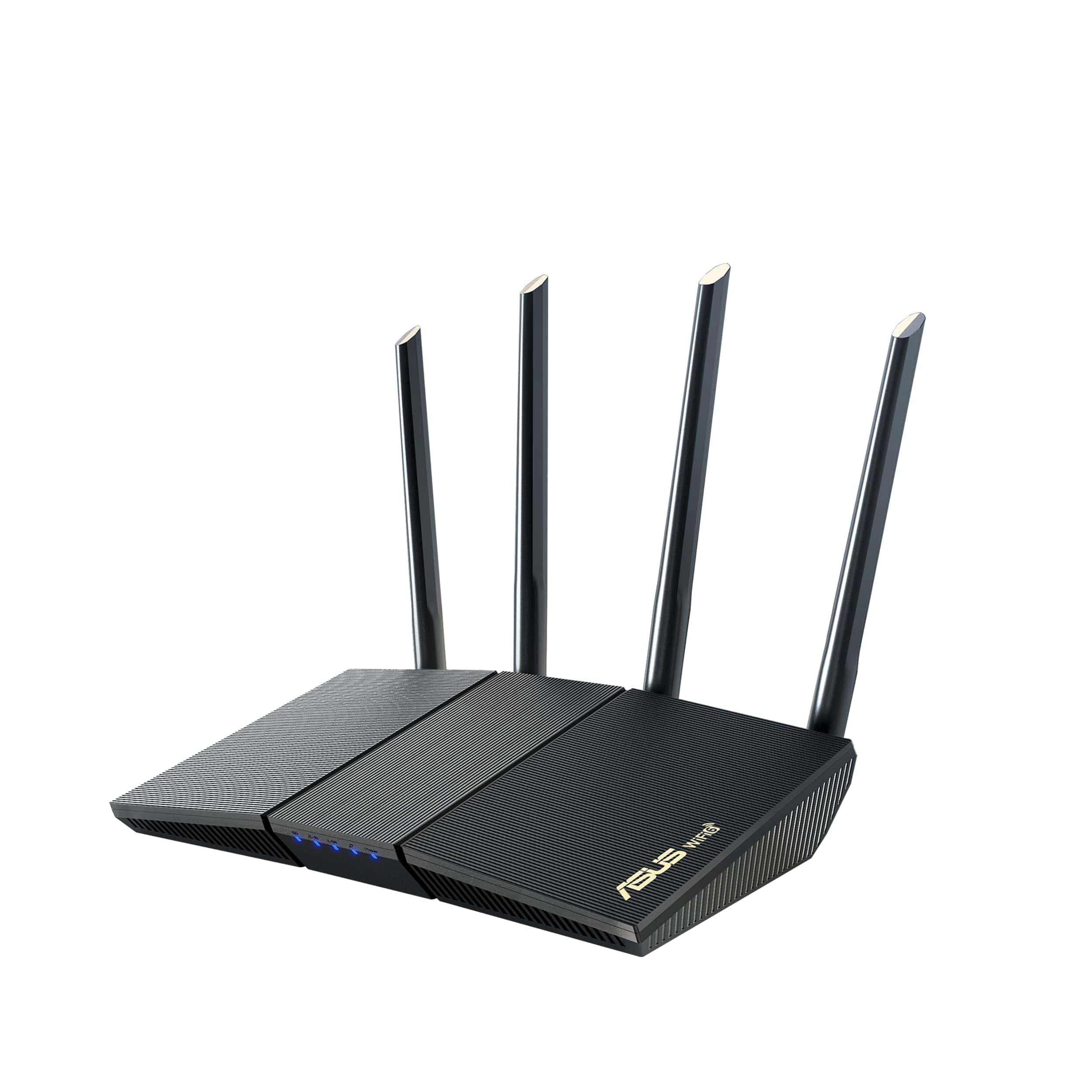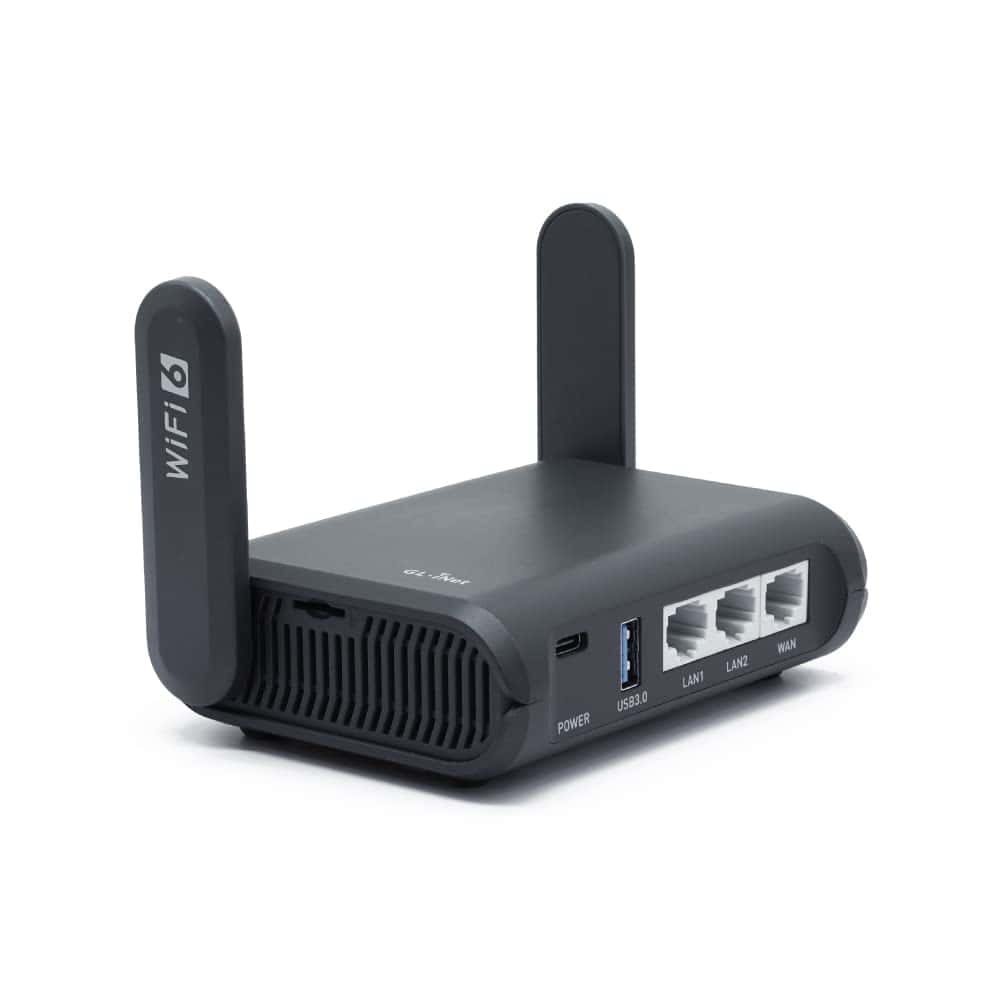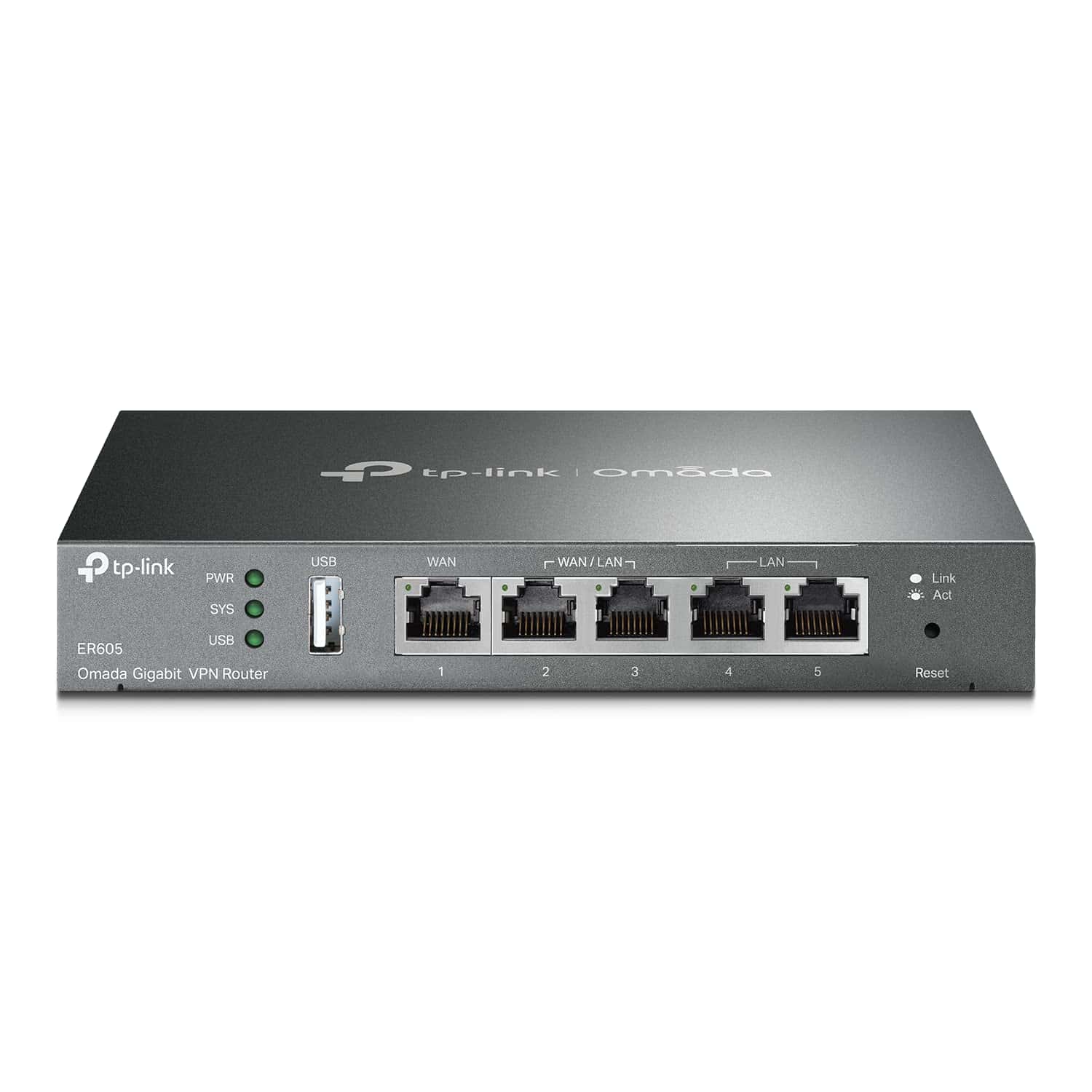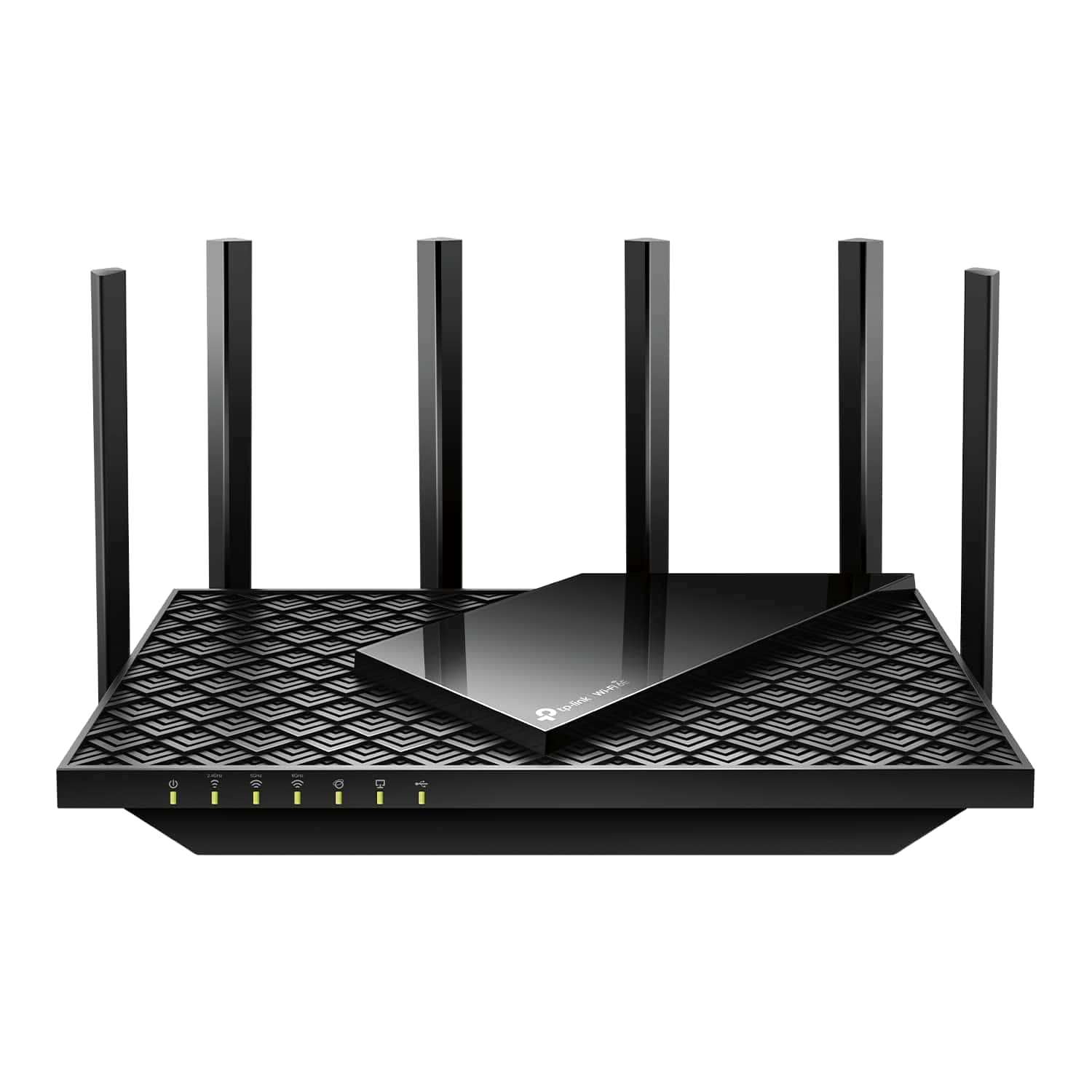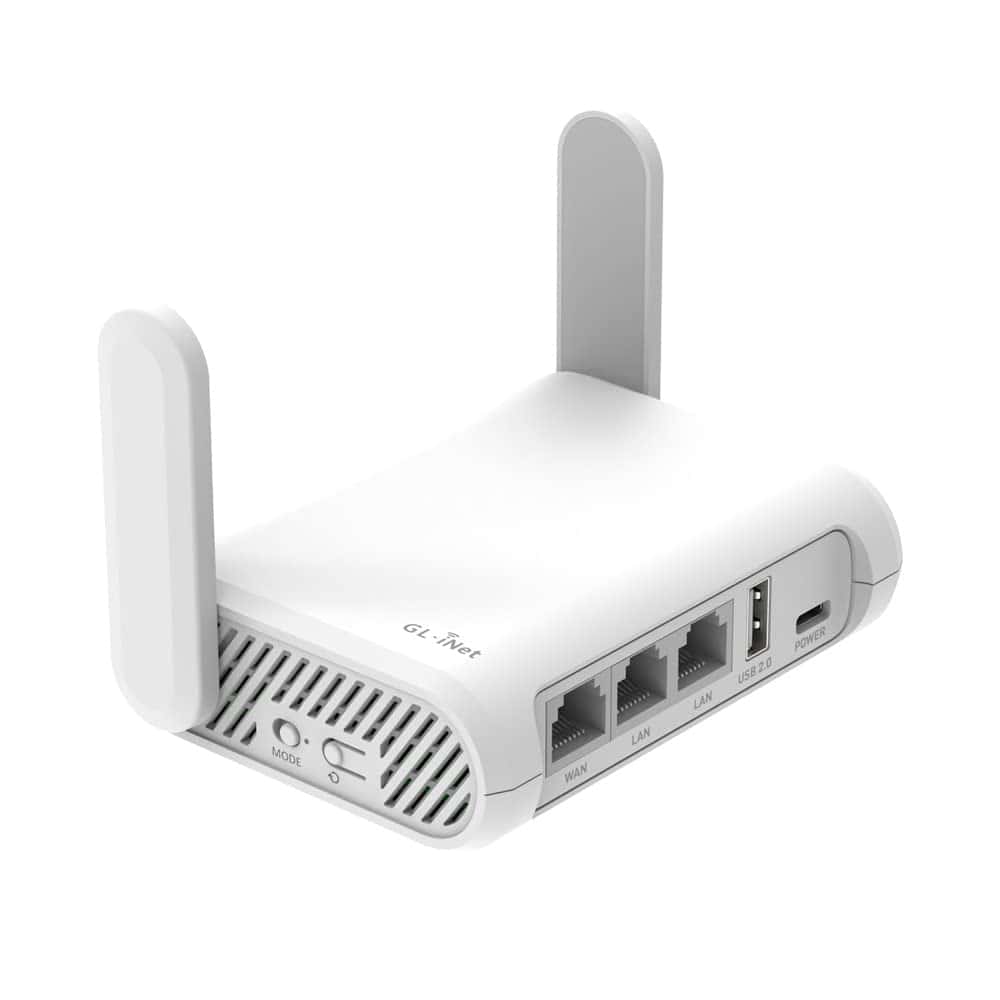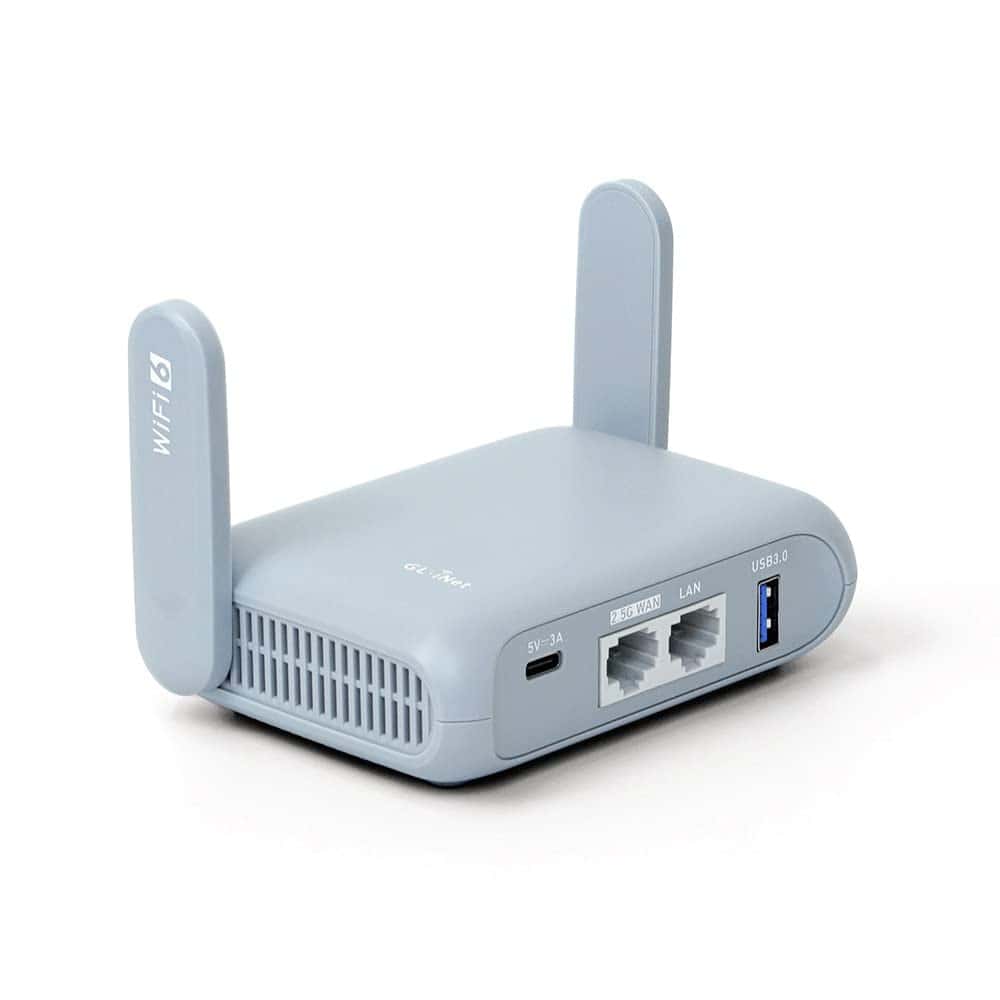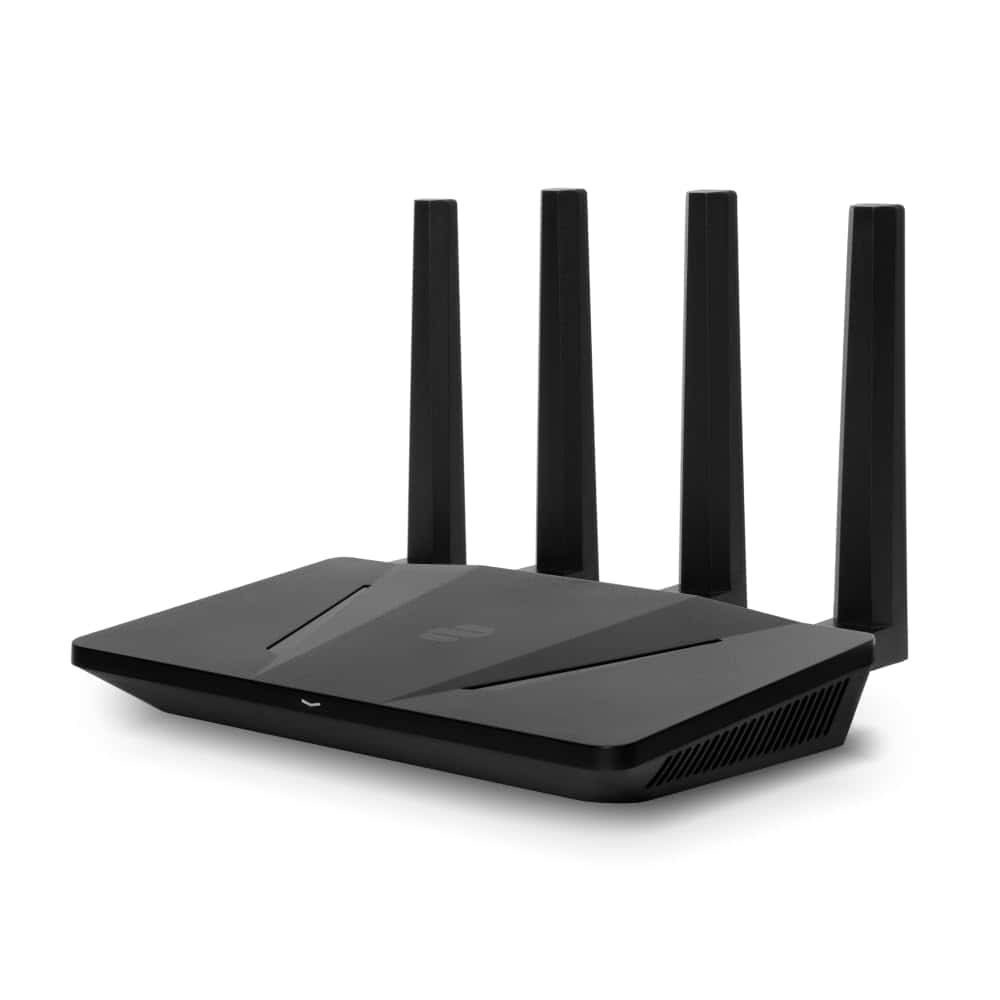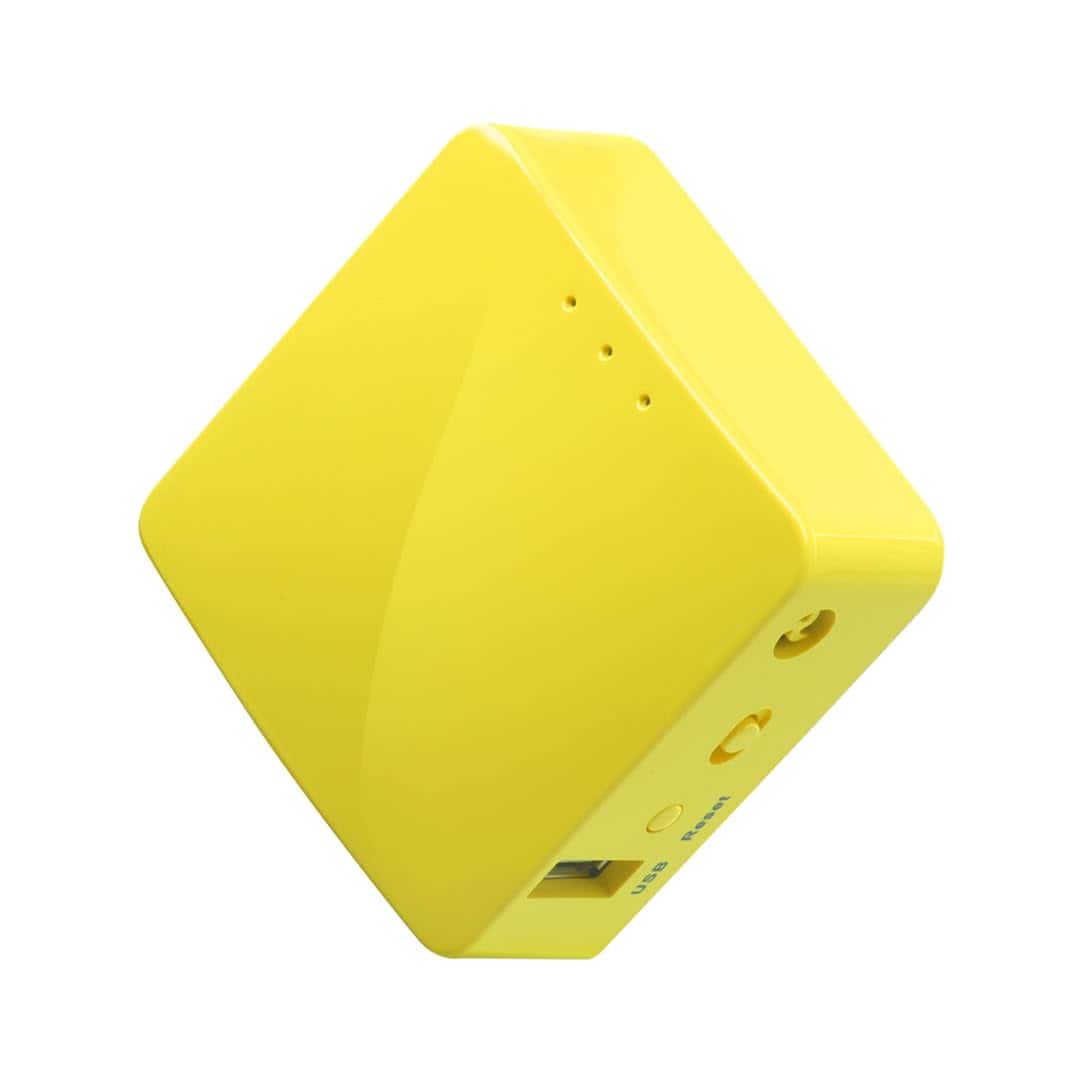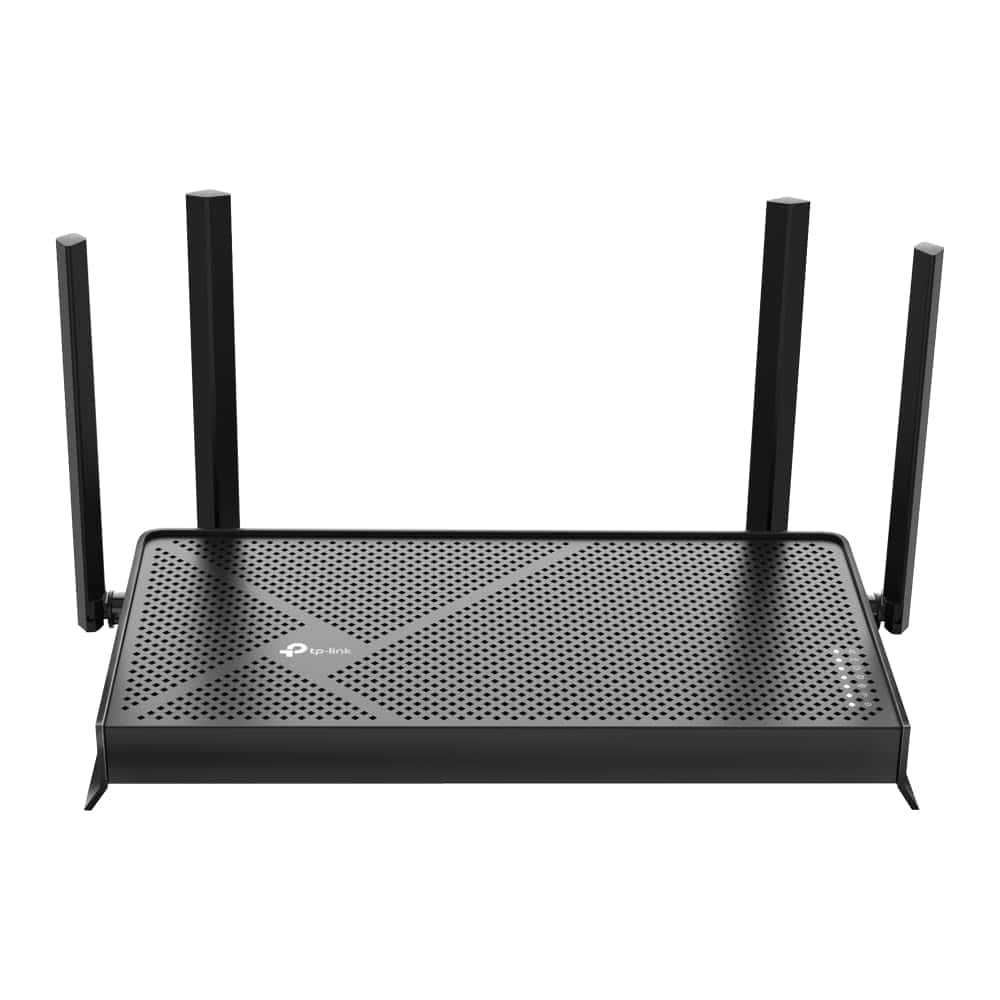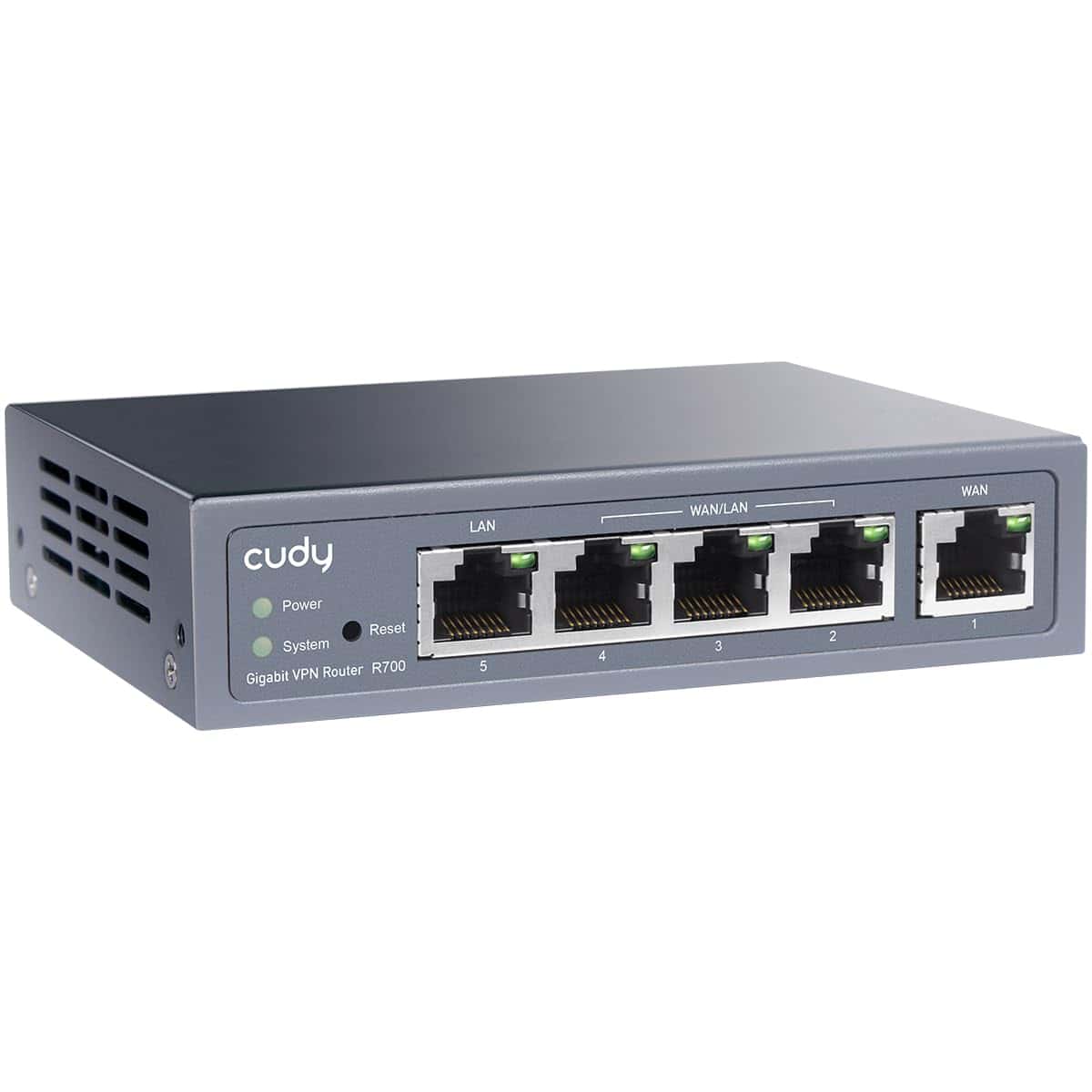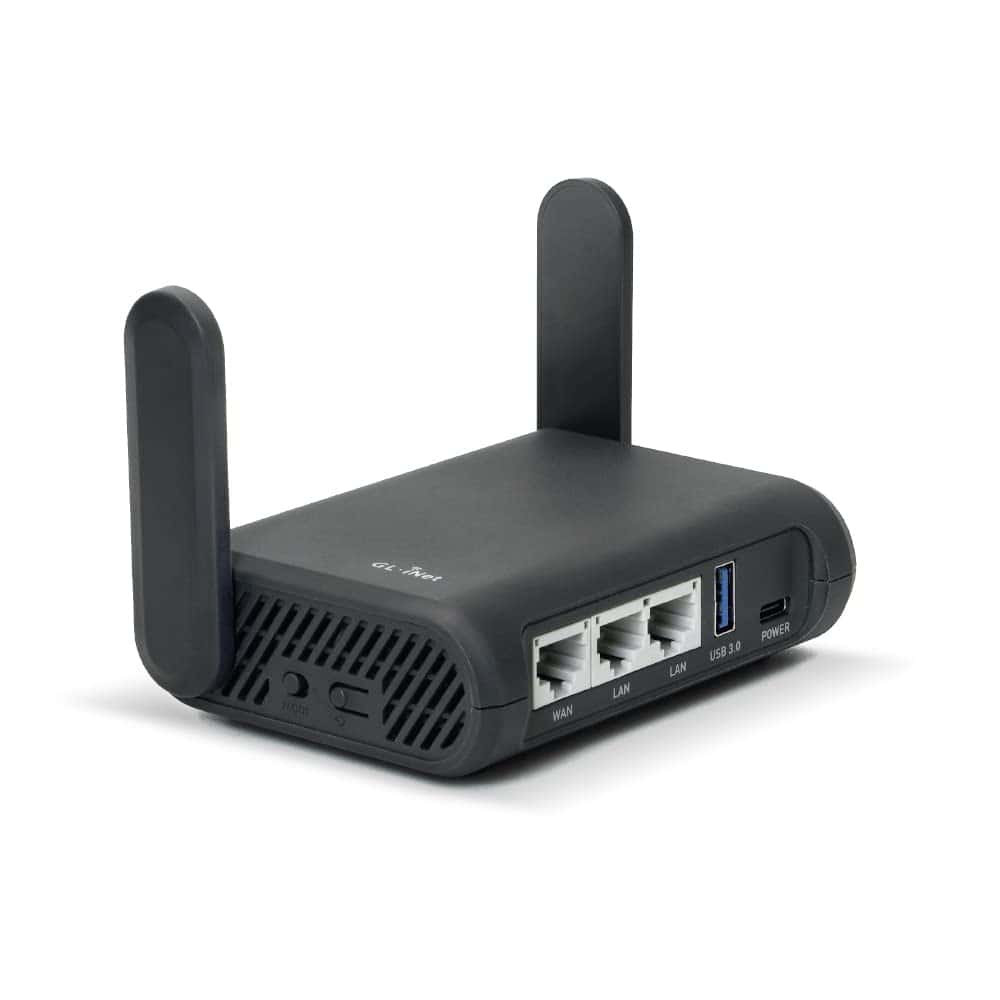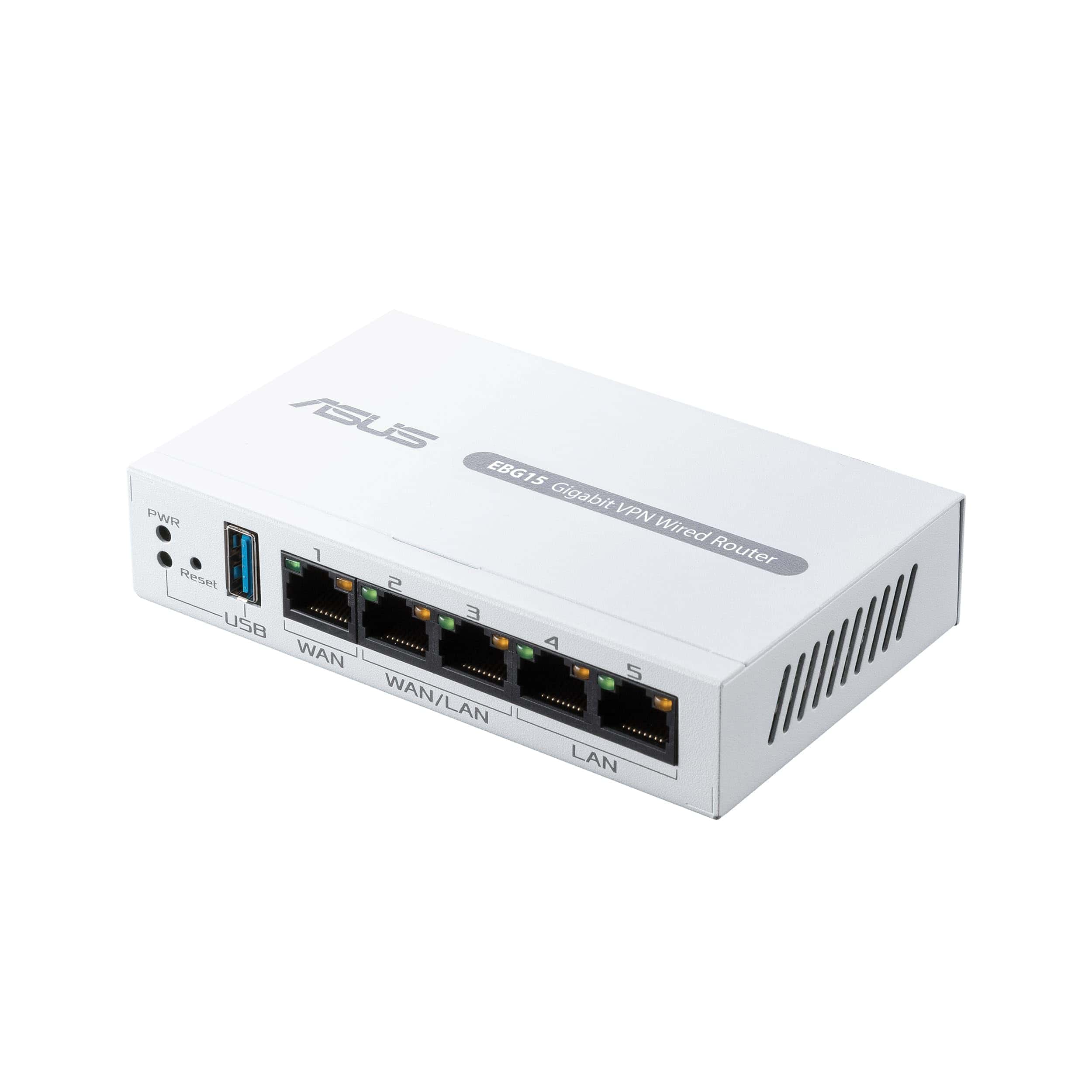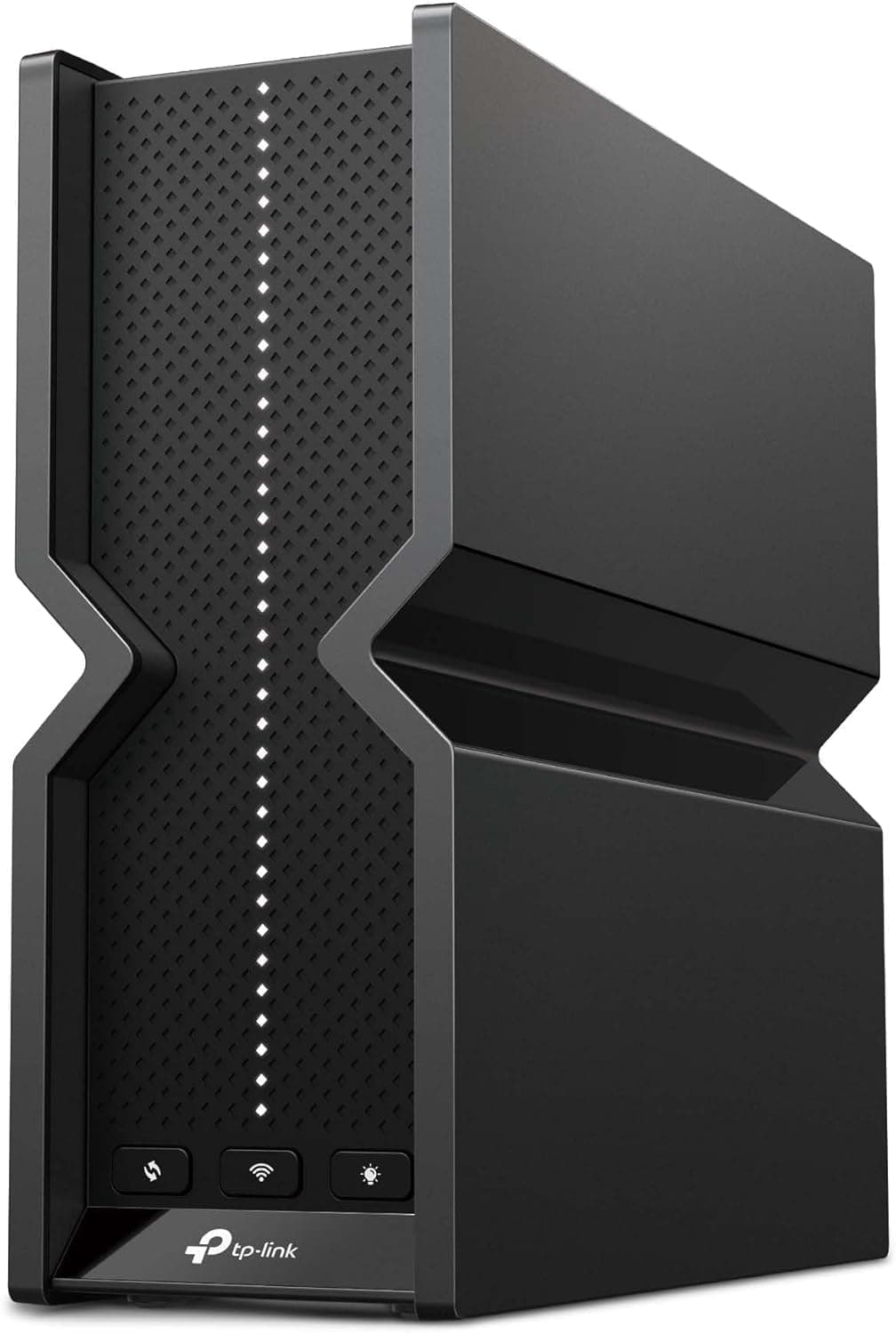VPN routers add a layer of security to your home network by encrypting your internet traffic. These special devices connect to your existing internet service and route all data through a virtual private network. This helps protect your privacy and can allow you to access content that might be restricted in your location.
Many people choose VPN routers instead of installing VPN software on each device. With a router-level VPN, every device on your network gets protection automatically. This includes smart TVs, game consoles, and IoT devices that can’t run VPN apps directly.
When shopping for a VPN router, pay attention to processor speed and RAM. These specs determine how many devices can connect without slowing down your internet. Also look at which VPN services the router supports, as not all routers work with every VPN provider. The firmware is another key factor – some routers come with VPN capabilities built in, while others need special firmware installed.
Best VPN Routers
Our list of top VPN routers helps you protect your home network from online threats. These devices create a secure connection for all your gadgets at once, saving you the hassle of installing VPN software on each device. We’ve tested and compared the most reliable models based on speed, security features, and ease of setup.
TP-Link Archer AX55 VPN Router
The TP-Link Archer AX55 is an excellent choice for home users seeking fast WiFi 6 speeds with robust VPN capabilities at a reasonable price.
Pros
- Fast WiFi 6 speeds (3000 Mbps combined)
- Works as both VPN server and client
- Strong coverage with four external antennas
Cons
- Advanced features require learning curve
- Premium security features need subscription
- May be overkill for basic internet needs
This dual-band router delivers impressive performance with speeds up to 2402 Mbps on the 5 GHz band and 574 Mbps on the 2.4 GHz band. Users will notice smoother streaming and faster downloads compared to older router models. The VPN functionality is especially useful, supporting both server and client modes for securing home networks.
WiFi coverage is a standout feature thanks to four high-gain external antennas and beamforming technology. These features help extend strong, reliable signals throughout larger homes. The improved cooling design prevents overheating during heavy use, which helps maintain top speeds even in challenging environments.
Network management is straightforward with TP-Link’s app and HomeShield security features. Basic protection comes free, including security scans and parental controls. The router works with all major internet service providers and supports voice control through Amazon Alexa. For families with multiple devices, the OFDMA technology allows more efficient bandwidth sharing, reducing latency when everyone’s online at once.
Smart home enthusiasts will appreciate the router’s ability to handle multiple connected devices. Its Target Wake Time feature helps extend battery life on connected devices by improving communication efficiency. The AX55 strikes a good balance between advanced features and user-friendly setup, making it suitable for both tech-savvy users and beginners looking to upgrade their home network security.
ASUS RT-AX1800S Router
This WiFi 6 router delivers solid performance, built-in VPN features, and good coverage for home users seeking a reliable VPN router solution.
Pros
- Built-in VPN with Instant Guard for secure connections
- Fast WiFi 6 performance with good coverage
- User-friendly setup and interface
Cons
- 2.4GHz band performance could be better
- Basic VPN features compared to premium options
- Limited customization for advanced users
The ASUS RT-AX1800S brings WiFi 6 technology to home networks with a focus on security. Four external antennas help extend the signal throughout most homes up to 1800 square feet. The router comes with ASUS AiProtection, powered by Trend Micro, which blocks malicious sites and protects connected devices from threats.
VPN capabilities stand out on this router. The built-in ASUS Instant Guard feature creates a secure VPN tunnel with one click when users are away from home. This function works well for people who need to access their home network safely while traveling or using public WiFi. The router supports other VPN protocols too, though some users might want more advanced options.
Connection speeds impress for most uses. The dual-band system delivers better performance on the 5GHz band, with some users reporting speeds between 800-900 Mbps. Multiple devices can connect simultaneously thanks to MU-MIMO and OFDMA technology. The four gigabit LAN ports provide wired options for gaming systems or desktops that need the most stable connections. Setup takes just minutes through the ASUS app, making this a good choice for users who want VPN features without complex configuration.
GL.iNet Slate AX VPN Router
The GL.iNet Slate AX offers excellent security features and WiFi 6 capabilities in a portable package, making it ideal for travelers who need secure internet connections.
Pros
- Fast WiFi 6 technology with speeds up to 1800 Mbps
- Built-in VPN support with OpenVPN and WireGuard
- Compact and portable design perfect for travel
Cons
- Default button settings require manual configuration
- Plastic build might not be extremely durable
- Learning curve for users unfamiliar with OpenWrt
This pocket-sized router packs impressive WiFi 6 technology into a travel-friendly form. Users get dual-band speeds up to 1800 Mbps with 600 Mbps on the 2.4GHz band and 1200 Mbps on the 5GHz band. The device can handle up to 120 connected devices at once, making it suitable for families or small offices.
Security stands out as a major strength. The router comes with OpenVPN and WireGuard pre-installed and works with over 30 VPN providers. WireGuard connections reach speeds up to 550 Mbps, while OpenVPN tops out around 120 Mbps. Cloudflare encryption adds another layer of privacy protection.
Travelers will appreciate the repeater function. The Slate AX can convert public or hotel WiFi into a private network, working with captive portals found in many public hotspots. A physical toggle switch lets users quickly enable or disable VPN connections or AdGuard Home, though this requires initial setup in the admin panel.
The router runs on OpenWrt 21.02, giving users flexibility to customize settings and install additional applications. File sharing capabilities through the USB 3.0 port allow for creating a portable NAS using external drives. This feature works with both SAMBA and WebDav protocols for broad compatibility.
TP-Link ER605 VPN Router
The TP-Link ER605 V2 is worth buying for small businesses or tech-savvy home users who need flexible connectivity options and strong security features at a reasonable price.
Pros
- Multiple WAN connections with load balancing capability
- Robust VPN support with multiple protocol options
- Integration with Omada SDN for centralized management
Cons
- Default IP address may cause network integration issues
- Setup requires technical knowledge
- Configuration menus can be complex to navigate
The ER605 V2 stands out with its flexible connectivity options. It offers three possible WAN ports plus a USB port for 4G/3G modem backup. This design helps keep networks running even if one internet connection fails.
Security features are a major strength of this router. It includes advanced firewall policies, DoS defense, and various filtering options. VPN support is especially impressive, with the ability to handle 20 IPsec, 16 OpenVPN, 16 L2TP, and 16 PPTP connections simultaneously.
Small businesses will appreciate the Omada SDN integration. This system lets network administrators manage multiple TP-Link devices from one interface. The router’s load balancing capability can optimize bandwidth usage across multiple internet connections, making efficient use of available resources.
Home power users might find the ER605 useful too. Its gigabit ports enable fast data transfer within the network. The price point makes it accessible for those who need business-class features without enterprise-level costs.
Setup does require some technical knowledge. Some users report difficulties with initial configuration due to the default IP address (192.168.0.1) and complex menu system. The learning curve is steeper than with typical consumer routers, but the additional capabilities make it worthwhile for those who need them.
Hardware specs include five total gigabit ports, lightning protection, and compatibility with multiple security protocols. The compact size (6.22 x 3.94 x 1 inches) makes it easy to place in most network setups.
TP-Link Archer AXE75 Router
The TP-Link Archer AXE75 offers excellent value for users seeking a reliable VPN router with Wi-Fi 6E capabilities and strong performance for home networks.
Pros
- New 6 GHz band delivers faster speeds with less interference
- Supports multiple VPN protocols (OpenVPN, PPTP, L2TP)
- Powerful 1.7 GHz quad-core processor handles multiple devices
Cons
- Higher price than standard Wi-Fi 6 routers
- Requires 6E-compatible devices to use newest band
- Setup may challenge less tech-savvy users
This tri-band router brings Wi-Fi 6E technology to home networks with speeds up to 5400 Mbps across three bands. The standout feature is the new 6 GHz band, which provides a clean, less congested pathway for compatible devices. For VPN users, this matters because encrypted connections need stable, fast performance.
VPN functionality is comprehensive with both client and server support. Users can connect to VPN services through OpenVPN, PPTP, or L2TP protocols or set up their own VPN server at home. This flexibility helps protect privacy when using public Wi-Fi or accessing home networks remotely.
The hardware inside the Archer AXE75 impresses with its 1.7 GHz quad-core CPU and 512MB RAM. These specs allow the router to manage multiple encrypted connections without significant slowdowns. The router works with all major internet providers and includes TP-Link’s HomeShield security features for basic network protection and parental controls.
OneMesh technology lets users expand coverage by adding compatible TP-Link extenders. This creates a seamless network throughout larger homes without the performance drops typical of basic range extenders. The 2-year warranty exceeds industry standards, providing extra peace of mind for this investment.
GL.iNet Opal Travel Router
The GL.iNet Opal is an excellent portable VPN router for travelers who need secure connections on the go with its combination of compact size, dual-band performance, and robust security features.
Pros
- Pocket-sized with foldable antennas for easy travel
- Dual-band AC1200 speeds with full gigabit ports
- Built-in OpenVPN and WireGuard support
Cons
- Physical toggle switch requires manual setup
- Not compatible with easy tethering
- Needs reconnection when used with time-limited public WiFi
This compact travel router offers impressive AC1200 dual-band wireless speeds. Users get up to 300 Mbps on the 2.4GHz band for basic tasks and 867 Mbps on the 5GHz band for data-heavy activities like streaming or gaming. The size is perfect for travel – weighing just 145g with a design that fits easily in bags or pockets.
Security stands out as a major strength with the Opal. It comes with pre-installed OpenVPN and WireGuard protocols compatible with over 30 VPN providers. The physical toggle switch lets users quickly enable or disable VPN connections once configured. Cloudflare encryption adds another layer of privacy protection when using public networks.
Connection options are plentiful with this router. Two gigabit LAN ports and one gigabit WAN port provide flexibility for wired devices. The router can also convert public WiFi into a private network, protecting multiple devices through a single secure connection. This function works well in hotels, cafes, and airports where public WiFi might otherwise expose personal data.
The retractable antennas improve signal reception when extended and positioned vertically. Setup is straightforward with the included guide, making this an accessible option even for less technical users. For travelers concerned about online privacy or those needing secure connections away from home, the GL.iNet Opal delivers impressive functionality in a travel-friendly package.
GL.iNet Beryl AX VPN Router
The Beryl AX is a top-tier portable VPN router for travelers and security-conscious users who need reliable, secure internet on the go.
Pros
- Impressive Wi-Fi 6 speeds up to 3000 Mbps
- Built-in OpenVPN and WireGuard support
- Compact size perfect for travel
Cons
- Higher price than basic travel routers
- Toggle button needs manual configuration
- Learning curve for advanced features
This pocket-sized router packs serious power in a small frame. With Wi-Fi 6 technology, the Beryl AX delivers fast speeds through its dual-band system. The 2.5G WAN port allows for multi-gigabit connections, making it much speedier than older travel routers.
Security stands out as a major strength. The router includes WPA3 protection and supports both OpenVPN and WireGuard protocols. Users can connect to over 30 VPN service providers with speeds reaching up to 300 Mbps when using WireGuard. For people worried about hotel Wi-Fi safety, this extra layer of protection proves invaluable.
Travelers will appreciate the portable design and versatility. The Beryl AX works well in hotels, coffee shops, and other public Wi-Fi spots. Multiple devices can connect to it, sharing a single secure connection. The OpenWrt firmware allows for customization through thousands of plugins, though most casual users won’t need to explore these options. For those who want both security and convenience while traveling, this router delivers excellent performance.
ExpressVPN Aircove Router
The ExpressVPN Aircove is an excellent choice for home users who want simple VPN protection across all their devices without individual app installations.
Pros
- Built-in ExpressVPN with device grouping by location
- Easy setup with good speeds up to 1,200 Mbps
- Covers up to 1,600 sq. ft. with Wi-Fi 6 support
Cons
- Requires separate ExpressVPN subscription after trial
- More expensive than standard routers
- Limited advanced router customization options
The Aircove router stands out in the crowded VPN router market by making whole-home protection simple. This Wi-Fi 6 router comes with ExpressVPN built right in, eliminating the need to install VPN apps on each device. Users get 30 days to try ExpressVPN before needing a subscription.
Setup takes minutes rather than hours compared to manual VPN router configurations. The router delivers dual-band Wi-Fi with speeds up to 1,200 Mbps and covers about 1,600 square feet. Many users report consistently strong connections throughout their homes without significant speed drops when the VPN is active.
One of the best features is the ability to sort devices into groups with different VPN locations. Family members can watch streaming content from various countries simultaneously while other devices use local connections for banking or shopping. The router also includes parental controls and ad blocking that work even when the VPN is turned off. While the price is higher than basic routers, the convenience of built-in VPN protection makes it worth considering for privacy-focused households.
GL.iNet Mango VPN Router
The GL.iNet Mango offers excellent portability and security features at an affordable price, making it a smart choice for travelers who need secure internet on the go.
Pros
- Ultra-portable size weighing only 1.38 ounces
- Built-in VPN support for secure browsing
- Dual Ethernet ports provide flexible connection options
Cons
- Limited to 2.4GHz WiFi only
- Uses older micro USB instead of USB-C
- May have speed limitations when VPN is active
This tiny pocket router transforms public WiFi into a secure network for all your devices. At just over 2 inches in each direction, the Mango fits easily in any travel bag or pocket. Users can power it through a laptop USB port, power bank, or wall adapter, making it perfect for hotel rooms, coffee shops, or anywhere with unreliable public internet.
Security stands out as a major strength of this device. The pre-installed OpenVPN client works with more than 30 VPN providers, letting users browse safely even on unsecured networks. This feature proves especially valuable for travelers concerned about privacy or those wanting to access geo-restricted content while abroad.
Setup happens quickly through the mobile app or web interface. The router connects to existing WiFi networks or Ethernet connections and creates a private network for all devices. This solves multiple problems at once – like cruise ships or hotels that charge per device for internet access. Connect the Mango once, and all your devices can share that single connection.
Technical users will appreciate the OpenWrt operating system that allows for customization and expansion. With 128MB RAM and open GPIO ports, the device supports tinkering and special projects beyond basic routing. The manufacturer provides a two-year warranty and regular firmware updates to keep security features current.
TP-Link ER7206 VPN Router
The TP-Link ER7206 is an excellent investment for businesses needing robust network security and multi-WAN capabilities that can handle substantial traffic demands.
Pros
- Supports up to 700 clients with capacity for 150,000 connected devices
- Multiple VPN protocol options with high connection limits
- Flexible port configuration with up to four WAN connections
Cons
- Omada SDN interface has a learning curve
- More expensive than basic VPN routers
- Requires technical knowledge to fully utilize features
This business-grade VPN router offers impressive network management capabilities through TP-Link’s Omada Software Defined Networking platform. Network administrators can control the device remotely through cloud access or the Omada app. This makes it ideal for businesses with multiple locations that need centralized management.
Security features stand out on the ER7206. The router includes advanced firewall policies, DoS defense, and filtering options that protect sensitive data. VPN support is comprehensive with up to 100 LAN-to-LAN IPsec, 50 OpenVPN, 50 L2TP, and 50 PPTP connections. Small to medium businesses will find this level of VPN capacity more than adequate.
Connection options are another strong point. The router has one Gigabit SFP WAN port, one Gigabit WAN port, two Gigabit WAN/LAN ports, and one Gigabit LAN port. This flexibility allows businesses to optimize bandwidth distribution and create reliable failover systems. Load balancing capabilities further enhance the efficient use of multiple internet connections.
The device has proven reliable according to user feedback. Many report years of trouble-free operation in demanding environments. Its durable design and lightning protection add to its appeal for critical network infrastructure needs.
TP-Link Archer BE230 VPN Router
The TP-Link Archer BE230 stands out as a future-proof VPN router with Wi-Fi 7 technology and multi-gigabit ports that make it an excellent choice for most home users seeking advanced networking capabilities.
Pros
- Wi-Fi 7 technology with 3.6 Gbps speeds ensures future-proof performance
- Dual 2.5 Gbps ports break through traditional speed limits
- Strong security features with built-in VPN functionality
Cons
- Higher price point than previous generation routers
- Limited real-world Wi-Fi 7 devices to take full advantage of capabilities
- Setup might be complex for networking beginners
The Archer BE230 brings Wi-Fi 7 technology to home networks with impressive dual-band speeds reaching up to 3.6 Gbps. This next-generation router delivers 2882 Mbps on the 5 GHz band and 688 Mbps on the 2.4 GHz band. Four high-gain antennas extend coverage throughout homes while beamforming technology targets connected devices for stronger signals.
What sets this router apart are its dual 2.5 Gbps ports that break the traditional 1 Gbps barrier. The powerful 2.0 GHz quad-core processor handles heavy traffic without lag, making it ideal for homes with many connected devices. For VPN users, the BE230 offers both client and server capabilities, allowing secure remote access to your home network or protected connections to external servers.
The Archer BE230 works with EasyMesh to create whole-home coverage when paired with compatible extenders. Security is robust thanks to TP-Link’s HomeShield, which provides network protection, parental controls, and IoT device security. Setup is straightforward through the Tether app, which also enables remote network management. With Wi-Fi 7 features like Multi-Link Operation for reduced latency and 4K-QAM for increased data capacity, this router is built to handle tomorrow’s networking demands.
Cudy Multi-WAN VPN Router
The Cudy R700 offers excellent value for small businesses or home networks requiring multiple internet connections with strong VPN support.
Pros
- Supports up to four WAN connections for load balancing or failover
- Extensive VPN protocol support including WireGuard and OpenVPN
- Durable metal construction in a compact design
Cons
- Setup can be challenging for networking beginners
- Failover switching may take up to a minute
- Limited documentation for advanced features
This Gigabit router stands out with its multiple WAN capability. Users can configure up to four WAN ports from the five total Gigabit Ethernet ports. The remaining ports function as LAN connections for your network devices.
Small businesses will appreciate the comprehensive VPN support. The R700 handles PPTP, L2TP, OpenVPN, WireGuard, and IPsec protocols for both server and client configurations. This makes it easy to set up secure connections to remote offices or for employees working from home.
Network stability improves with the load balancing feature. The router intelligently distributes traffic across multiple internet connections based on bandwidth. This maximizes speed and provides automatic failover if one connection drops. Many users report the setup process takes about 15 minutes once they understand the interface.
The compact metal case measures just 4.68 x 3.34 x 1.1 inches, making it easy to place on a desk or shelf. The sturdy construction helps with heat dissipation during continuous operation. Network administrators will find useful controls for managing access, including IP/MAC filtering and URL blocking options.
GL.iNet Pocket VPN Router
The GL.iNet GL-A1300 offers excellent security features and portability, making it a worthwhile investment for travelers who need reliable and secure internet access on the go.
Pros
- Powerful dual-band WiFi with speeds up to 867Mbps
- Built-in OpenVPN and WireGuard support
- Customizable through OpenWrt open-source platform
Cons
- VPN speeds limited to 170Mbps at maximum
- Learning curve for non-technical users
- Physical toggle switch requires manual setup
This compact travel router packs impressive features into a small package. The GL.iNet GL-A1300 measures just 4.65 x 3.31 x 1.3 inches and weighs under a pound, making it easy to take anywhere. Users can connect it to public WiFi networks in hotels, cafes, and airports to create a secure private network.
Security stands out as a major strength. The router includes pre-installed VPN clients compatible with over 30 service providers. It also features an internet kill switch that cuts all connections if the VPN fails. The ability to set up separate guest networks adds another layer of protection for personal devices.
Open-source enthusiasts will appreciate the OpenWrt 21.02 operating system. This allows for extensive customization and adding applications based on specific needs. Additional features like AdGuard Home for blocking ads and encrypted DNS with Cloudflare further enhance privacy while browsing.
ASUS ExpertWiFi EBG15 VPN Router
The ASUS ExpertWiFi EBG15 offers small business owners good security features and flexible connectivity options at a reasonable price point.
Pros
- Free lifetime subscription to ASUS AiProtection Pro security
- Multiple WAN options including USB mobile hotspot backup
- Easy setup through web browser or mobile app
Cons
- Some users report interface confusion
- Limited advanced enterprise features
- Mixed reviews on long-term reliability
The ASUS ExpertWiFi EBG15 stands out as a wired VPN router built for small businesses needing enhanced security. Setup happens quickly through either the web interface or the ASUS ExpertWiFi mobile app with Bluetooth. This makes configuration simple even for users without extensive networking knowledge.
Security features form the backbone of this router’s appeal. It includes commercial-grade protections like intrusion prevention systems and deep packet inspection without requiring monthly subscriptions. The ability to create VLANs adds another layer of security by keeping different network segments separated. Small offices can protect sensitive data without complex equipment.
Connection options provide flexibility for business environments. The router includes up to three WAN ports with load balancing to optimize internet usage across multiple connections. A standout feature is the USB port that works as a backup WAN by connecting to a mobile hotspot. This failover capability helps maintain internet access during primary connection outages. The compact size and affordable price make it suitable for home offices and small retail locations.
TP-Link Wi-Fi 7 VPN Router
The TP-Link Archer BE550 offers exceptional speed and security features that make it a top choice for users needing reliable home VPN capabilities.
Pros
- Lightning-fast tri-band Wi-Fi 7 with speeds up to 9.2 Gbps
- Full 2.5G ports for future-proof networking
- Built-in VPN client and server support
Cons
- Higher price point than older router models
- Setup may challenge less tech-savvy users
- Large physical footprint requires adequate space
This router stands out with its cutting-edge Wi-Fi 7 technology. The Archer BE550 delivers impressive speeds across three bands: 5760 Mbps on the 6 GHz band, 2880 Mbps on the 5 GHz band, and 574 Mbps on the 2.4 GHz band. These speeds easily handle 4K streaming, gaming, and large file downloads without slowdowns.
VPN users will appreciate the built-in client and server support. This feature lets home devices connect to remote VPN servers without installing software on each device. The router also allows both VPN and regular internet connections at the same time, adding flexibility to your network setup.
Security gets a boost with TP-Link’s HomeShield system. It offers network protection, parental controls, and IoT security monitoring. The private IoT network feature adds another layer of protection by creating a separate network for smart devices, reducing potential security risks to your main network.
The router includes one 2.5G WAN port and four 2.5G LAN ports. These high-speed connections ensure your wired devices get maximum performance. Six internal antennas with beamforming technology help create stronger connections throughout your home, covering up to 2,000 square feet.
EasyMesh compatibility makes network expansion simple. Adding compatible devices extends coverage to eliminate dead zones while maintaining seamless connectivity as you move throughout your home.
ExpressVPN Aircove Router
The ExpressVPN Aircove offers excellent whole-home VPN protection with impressive coverage and unique device grouping features that make it worth considering for privacy-focused users.
Pros
- Built-in ExpressVPN service with device grouping capabilities
- Wi-Fi 6 technology with 1,600 sq. ft. coverage
- Easy setup with parental controls and ad blocking features
Cons
- Requires separate ExpressVPN subscription after trial period
- Performance can slow down when VPN is active
- Limited to specific regions (UK/EU version)
The Aircove router stands out in the VPN router market with its seamless integration of ExpressVPN services. Users can connect multiple devices across a 1,600 square foot area with dual-band Wi-Fi speeds up to 1,200 Mbps. The router comes with a 30-day free trial for new ExpressVPN users, though an active subscription is required afterward.
One of the most useful features is the ability to sort devices into groups with different VPN locations. This means someone can watch region-restricted content on a TV while another family member does secure banking through their local server. Some devices can even be set to bypass the VPN entirely when needed.
Security options extend beyond just VPN protection. The Aircove includes parental controls and blocks ads and trackers. These features remain available even when the VPN is disabled. Setup is straightforward according to multiple reviewers, making this a good choice for users who want VPN protection without complex configuration requirements.
Many customers appreciate the router’s range and signal strength in home environments. However, some users report significant speed reductions when the VPN is active. This particular model is designed specifically for customers in the UK and Europe, with a separate version available for North American users.
Buying Guide
Choosing a VPN router requires looking at several key features. The right choice depends on your needs and budget.
Speed and Performance
Router speed affects how fast your internet works through a VPN. Look for routers with:
- Fast processors (1GHz or higher)
- Sufficient RAM (256MB minimum)
- Support for modern WiFi standards (WiFi 5 or WiFi 6)
A slow router creates bottlenecks, especially when multiple devices connect simultaneously.
VPN Compatibility
Not all routers work with every VPN service. Check if the router supports:
| Feature | Why It Matters |
|---|---|
| OpenVPN | Most secure protocol |
| WireGuard | Newer, faster protocol |
| Multiple VPN connections | Connect to different locations |
| Kill switch | Protects if VPN disconnects |
Pre-flashed routers come with VPN software already installed. Standard routers might need firmware updates to work with VPNs.
Coverage Area
Consider the size of your home or office. Larger spaces need stronger signal strength or mesh systems.
Single-story homes often work well with one powerful router. Multi-story buildings might need multiple access points.
Security Features
Look for routers with strong security options:
- WPA3 encryption
- Automatic firmware updates
- Separate guest networks
- Parental controls
These features protect your network beyond what the VPN provides.
Price Considerations
VPN routers range from $50 to $500+. More expensive models typically offer better performance, more features, and longer support.
Budget-friendly options work for basic needs, while high-end models handle streaming, gaming, and many connected devices.
Frequently Asked Questions
VPN routers help secure home networks and simplify the connection process. They offer various benefits for different users, from families wanting whole-home protection to travelers needing portable security solutions.
What are the advantages of using a VPN router at home?
A VPN router encrypts internet traffic for all connected devices at once. This saves time compared to installing VPN software on each device separately.
Home VPN routers protect smart devices that can’t run VPN software directly. These include smart TVs, gaming consoles, and IoT gadgets.
The router provides consistent protection without needing to remember to activate VPN apps. Once set up, it works automatically for everyone using the network.
How does a pre-configured VPN router simplify the setup process?
Pre-configured VPN routers come with VPN software already installed. Users can avoid complex firmware installation and configuration steps that might intimidate beginners.
These ready-to-use routers typically require just a few simple steps to connect. Users often just need to enter their VPN account credentials to get started.
Many pre-configured options include technical support specific to the VPN service. This helps solve problems quickly if setup issues occur.
Which factors should be considered when choosing the best VPN router?
Processing power is crucial for VPN performance. Look for routers with faster CPUs (1GHz+) and more RAM (256MB+) to handle encryption without slowing down internet speeds.
Router compatibility with your preferred VPN service matters. Some routers work better with certain VPN providers or protocols than others.
Wireless standards affect speed and range. Modern VPN routers with WiFi 5 (802.11ac) or WiFi 6 (802.11ax) provide faster connections for multiple devices.
Security features like built-in firewalls and regular firmware updates help protect the network from additional threats beyond what the VPN provides.
What features are important in a VPN router for frequent travelers?
Compact size and portability make travel routers easier to pack. The best travel VPN routers are lightweight and take up minimal space in luggage.
Battery operation helps when power outlets are limited. Some travel VPN routers can run on built-in batteries or connect to power banks.
Multiple connection modes allow flexibility when connecting to different internet sources. Good travel routers can connect via Ethernet, WiFi, or even cellular connections.
Quick setup features save time when moving between locations. Travel routers with simple interfaces let users reconnect quickly in hotels and other temporary locations.
Are there any compatibility concerns with certain VPN routers and popular VPN service providers?
Protocol support varies between routers and VPN services. Some routers might not support newer protocols like WireGuard or IKEv2 that certain VPN providers use.
VPN provider apps might not work on all router platforms. Many custom firmware options like DD-WRT support OpenVPN, but might not work with proprietary VPN systems.
Some VPN providers offer specific router models they’ve tested and verified. Using these recommended models helps avoid unexpected compatibility problems.
Is it possible to use a VPN service on any router or does it require specialized firmware?
Standard consumer routers typically don’t support VPN client functions. Most factory routers can create VPN servers but can’t connect to external VPN services.
Third-party firmware like DD-WRT, Tomato, or AsusWRT-Merlin adds VPN client support. These firmware options replace the original software to enable VPN connections.
Router hardware limitations affect VPN performance. Even with compatible firmware, older or budget routers often lack the processing power needed for decent VPN speeds.
FlashRouter and similar companies offer pre-flashed routers with the necessary firmware already installed. This option costs more but saves time and reduces setup hassles.

